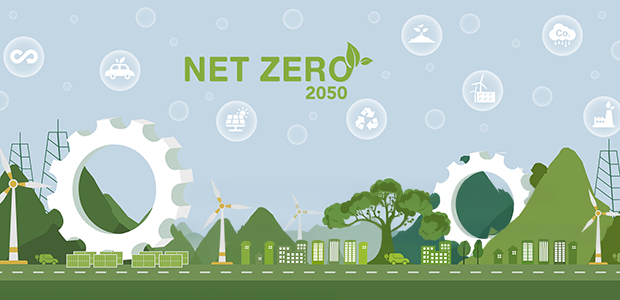
Report urges UK greentech companies to capitalise on Taiwan’s commitment to net zero
Taiwan’s ambitious drive to reduce its reliance on imported fuel and achieve its net zero targets is opening significant opportunities for UK renewable energy companies, according to a new report.
In 2023, Taiwan was 98% dependent on imported fuel for power generation. In response, the Taiwanese authorities have committed to generating 60–70% of its energy from renewable sources by 2050, backed by investment of almost £22.3 billion. To achieve this, Taiwanese companies are seeking partnerships with UK innovators in offshore wind, solar energy, and hydrogen power, as well as sourcing technologies in related areas such as carbon capture, energy storage and resource recycling.
This is the key finding of a report, prepared by international business development consultancy Intralink as part of the UK-APAC Tech Growth Programme, which it delivers on behalf of the UK government. The report is available for free download here.
Primary areas of opportunity identified by the report are:
Offshore wind – Taiwan has abundant wind resources and its wind energy capacity expanded by almost 50% in 2022, and by almost 70% in 2023. The island is now capable of generating almost 2,700 megawatts (MW) of wind power. To support this rapid growth, Taiwan requires assistance in areas including the spatial inventorying of development sites and the creation of suitable port and grid infrastructure.
Solar – Taiwanese photovoltaic (PV) capacity is projected to increase from 12 to 80 gigawatts (GW) by 2050. This expansion is driving a need for technologies in areas including grid connectivity, PV recycling, and reliable PV systems.
Hydrogen – Taiwan aims to achieve a hydrogen power capacity of 7,300MW by 2050, presenting opportunities for UK tech innovators in hydrogen power generation, supply chain development, and infrastructure.
The report emphasises the importance for UK tech companies of understanding Taiwan’s regulations, market needs, and supply chain localisation policies. While these policies can pose challenges, they also present opportunities for UK companies to collaborate with Taiwanese partners through joint ventures.
Additionally, the rise of Taiwanese greentech startups seeking global partnerships offers further avenues for collaboration as many aim to commercialise their innovations on the international stage.
Sam Leng, Senior Project Manager at Intralink Taiwan and author of the report, commented: “Taiwan’s reliance on imported fuel, coupled with the global shift towards carbon taxation, is driving its push for renewable energy and energy efficiency. The significant funding allocated to meet these targets, together with its desire to adopt international best practices, creates fertile ground for UK companies with innovative technologies in the renewable energy field.
“Through the UK-APAC Tech Growth Programme, we can support them in navigating Taiwan’s market dynamics and ensure they adopt market entry strategies that position them for success. We look forward to helping our participants capitalise on the huge opportunities in Taiwan’s renewable energy sector during 2025.”
The UK-APAC Tech Growth Programme helps high-growth technology companies expand into the Asia Pacific region. Participating companies gain access to free and subsidised market entry guidance, business development support and connections with potential partners and customers. The programme covers 11 APAC markets including Japan, South Korea, Singapore, and Australia, as well as Taiwan.

